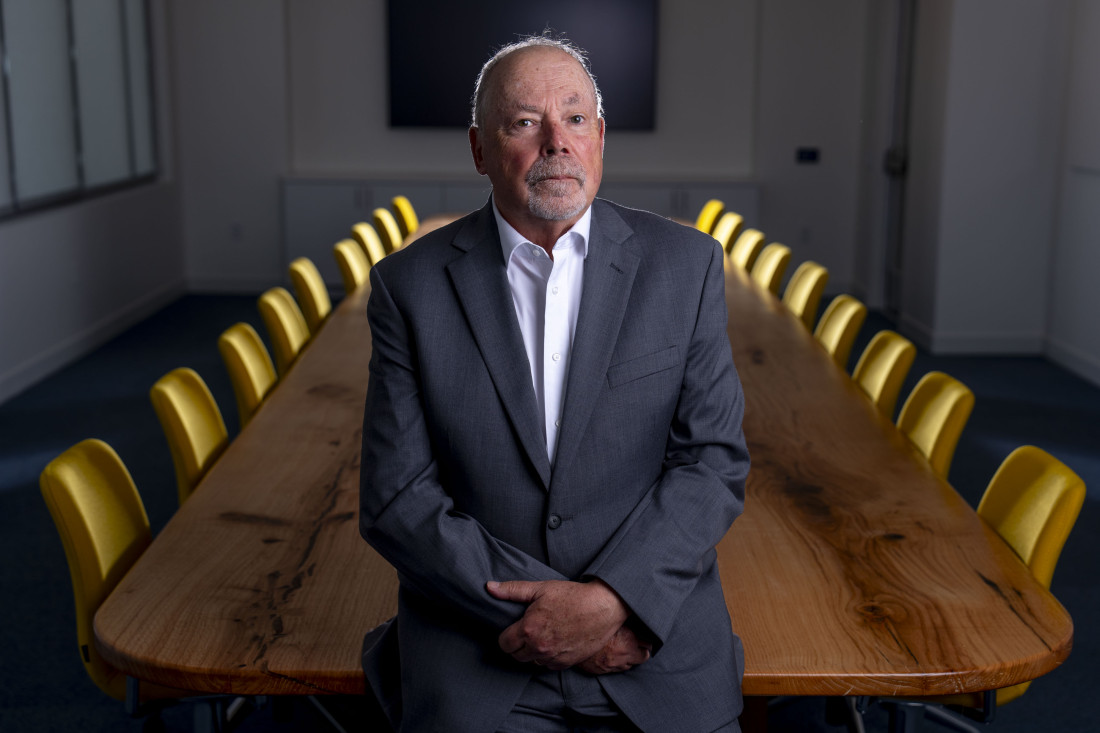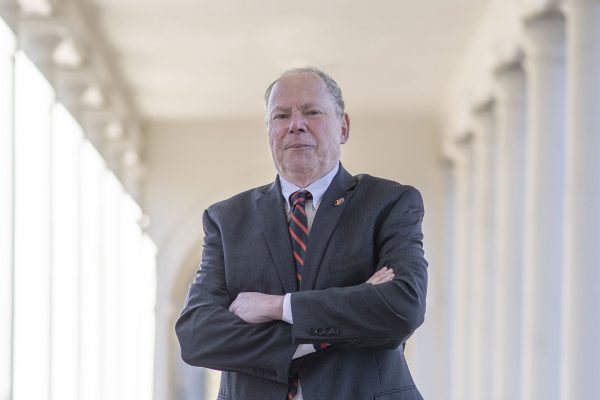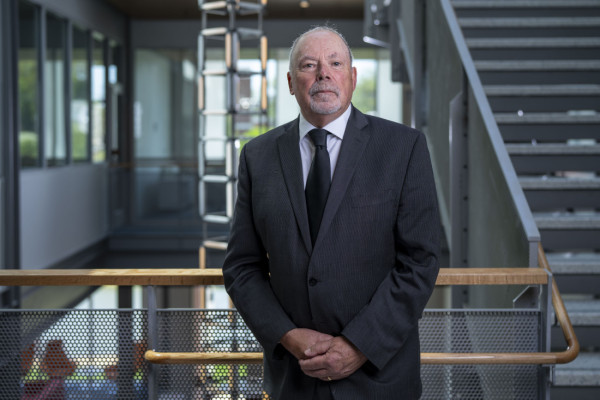Dean’s Blog – This Moment and Beyond

At this moment in time, the University of Virginia (UVA) is without a President, has a new Rector who leads the Board of Visitors (BOV, also known as Trustees), with new members, and has several interim academic leaders. Higher education is under assault both financially and philosophically, leading to questions of trust and worth. Job markets are changing, influenced by AI and other technologies. How should the UVA School of Data Science (SDS) move beyond this moment?
As in all things, I look for opportunity in a time of adversity. Look beyond the moment. There are too many unknowns right now, but there are certainties in the beyond, at least as I see the future. If uranium was the fuel of the atomic age, then data are the fuel of the AI age. We are custodians of that fuel. We study the science of data. There is so much to contribute to a world that is being fundamentally changed by data, as with the atomic age, for good or for bad.
In short, there are concerns and opportunities beyond this moment. How should we act and where should we devote our energies? Let me address this question through the three pillars that drive all we do: education, research, and service.
Education
At the beginning of the pipeline, we admit students already using AI at the very least as a personal assistant, but without the experience of studying the implications to themselves and to humanity. At the midpoint of the pipeline and as they leave UVA, we see the leading edge of decline in white collar jobs for entry-level programmers and basic data analysts. That we are revisiting all of our curricula with this in mind is a first and ongoing step. Our alumni are vital to this process, as they provide a feedback loop for the rapid changes taking place in the job market. To that end, we need to bolster our alumni relations beyond fundraising to that of advisors. We do this through the use of professors of practice and visiting fellows, but we could do more across all verticals.
Our focus on Data and Society as one of our tenets of data science has served us well in terms of institutional and global recognition and will only become more important, if not the most important component, of all we do. Beyond that is the importance we place on data engineering. My sense is we are in for a backlash as the power of generalizable large language models becomes ever more apparent and suddenly data quality that can be authenticated becomes the coin of the realm. Truth be told, this has always been the case as digital knowledge stores have been developed. Think Wikipedia. Suddenly it becomes paramount. We need to prepare and train our students appropriately for the realization that quality data, judged by humans, will be what drives our economy.
Research
The federal budget has passed and we await the ramifications. We must be prepared for the reality that federal funds supporting academic research will be cut by upwards of 50%. The grant that took three attempts to get funded might now take six, if funded at all. How should SDS respond to this new reality? I would offer two answers: diversification and focus. These, I do not see at odds with each other.
Let’s start with diversification. We have been preparing by building out processes for public-private partnerships as one form of diversification. SDS-Solutions, a proposed University Associated Organization, approved by President Jim Ryan before he resigned, is a step in that direction. A broker service to facilitate such interactions between SDS assets—faculty and students and their work—and other sectors (corporate, foundations, non-profits, local government, etc.) Part of a broader and emergent university-wide entrepreneurial ecosystem that we are helping foster at a difficult time. A time that sees us promote UVA Innovates as well as help bring a Tadler Chair of Entrepreneurship and Chief Innovation Officer to the university. I will work to get SDS-Solutions on the slate for approval at the BOV meeting in September 2025. The future data science and entrepreneurship building that will adjoin our existing home was approved at the last BOV meeting, and architectural bids have been received from 26 firms. The selection process is underway. As you see, we are starting to diversify. Now, what about focus?
A faculty member’s research may have to change focus. This is hard when you have devoted so much of your career to a specific research area, but the reality is, it won’t get funded. This goes beyond areas like health disparities and gender studies to areas that are permissible but with less funding than previously and hence the odds of funding are low to non-existent. Researchers must be adaptable. How can your research morph towards areas where funding remains or, for some areas like AI, where funding is expected to increase? Research has always followed the trail of available funding opportunities. This has never been truer.
Changing the focus of your research also likely implies changing focus on where to apply for research funds, which takes us back to diversification. If you have never applied for a grant in partnership with industry or explored launching a startup, consider giving it a try. If you have never applied to a philanthropy foundation, think of doing so. We are seeing a shift from the post World War II funding model of academic research, and my guess is it is already too late to see it return for at least a decade, if at all, to pre-2024 levels. Prepare as best you can for this new reality. We must begin to train our graduate students and postdocs with soft skills that go beyond communication, networking, and scientific integrity, but that embrace topics such as the ability to deliver a pitch, write a business plan, and think in terms of solution-based science.
This is a new era where you need to disseminate your research in ways that reach new audiences. This includes the general public, many of whom have lost faith in the research enterprise. Gaining or regaining that belief starts with clear, understandable communication using simple language in layman’s terms.
Service
Academia puts a value on service during faculty evaluations. This is usually framed as internal service such as serving on hiring and tenure committees, as journal reviewers and editors, or helping perpetuate the academic system. With local and federal governments believing the current system should be revised, it is time to rethink what service implies. I believe it means service to a broad set of communities, under current law, without regard to race, gender or sexual orientation. I am proud of what SDS has accomplished in this regard as it relates to K-12, the City of Charlottesville, Albemarle and surrounding counties, and to the Commonwealth of Virginia. As a “School Without Walls,” our doors remain open, challenging any perception of elitism and reaffirming our commitment to the communities we serve as a public university. We will continue to expand these efforts as much as our people and resource capacity will allow.
All of this adds up to, over time, a significant change in the academic incentive structure. The value will shift from academic papers and books that are read by only a few peers, to knowledge that is disseminated more broadly. This knowledge will, in measurable ways, make a difference to society. This is in alignment with how we are encouraging our own SDS faculty during their evaluations.
More broadly, we find ourselves in a time of social upheaval—of which higher education is a part. As Bob Dylan observed in 1963, in a moment I vividly remember, it seems equally apropos right now.
The line it is drawn, the curse it is cast
The slow one now will later be fast
As the present now will later be past
The order is rapidly fadin’
And the first one now will later be last
For the times, they are a-changin’

